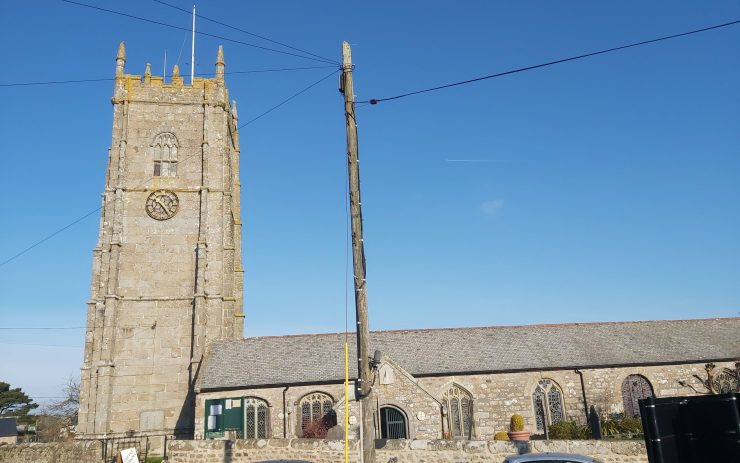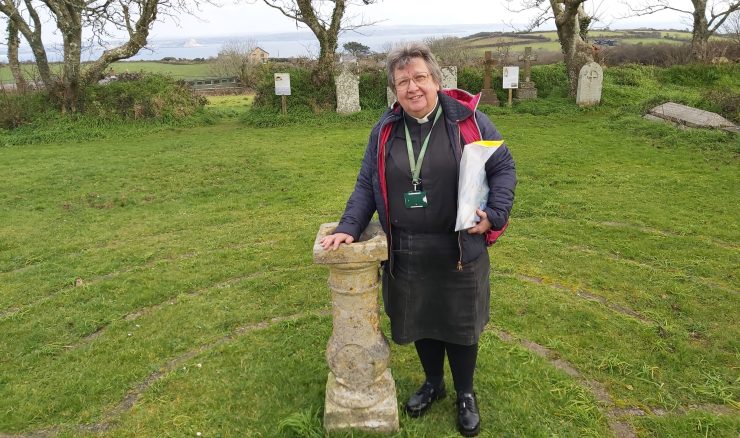It’s all on in Paul
The village of Paul lies in the civil parish of Penzance. It once lay in the civil parish of Paul, but it hasn’t done so since 1934, when it was excluded from the administrative area which took its name – a zone which was itself abolished 40 years later. So that’s not confusing at all.
Meanwhile, the skyline and spiritual life of the ecclesiastical parish of Paul is rather more confidently dominated by the reassuringly permanent fixture of the Church of St Pol de Léon, better known as Paul Parish Church.
It is said that a Welsh saint called Paul Aurelian founded a worshipping community on the site as far back as 490 AD. The current medieval church had been burnt down in August 1595 during the Spanish raid on Mount’s Bay, but was swiftly rebuilt – within just five years of that unfortunate conflagration.
Like many such large and beautiful medieval buildings, the cost of heating it through the winter months has of course risen dramatically as a result of the ongoing series of unprecedented hikes in energy prices.
But the good people of Paul were not to be daunted by this latest crisis. There is a remarkable strength, resilience and sense of community born out of the history of life in this far corner of the southwest of England.
They had after all managed to rebuild their parish church in five years after the Spanish had burnt it down. They weren’t going to let the cost-of-living crisis get in the way of their mission to support their community, especially in these times of most extraordinary need.
Following a successful request to the Diocese of Truro for emergency funding to help them heat the church through the winter, the parish’s extensive range of community activities has now been able to continue unabated.
“I’m happy to report that things are going well,” says churchwarden Judith Byrne.
Paul’s ‘Never Alone’ initiative includes keeping the church open to local people and visitors through daylight hours. On Wednesdays they run coffee mornings. These are increasingly popular and vibrant social events, making the time-worn stones of the ancient church echo and buzz with happy, friendly chatter.
At half term, they also offer a holiday play scheme, providing a nutritious meal along with fun and educational activities each day.
One of their most popular events is a weekly lunch club, which meets every Monday. The logistics of this enterprise might have daunted lesser mortals. “We have a rota of four teams of four who cook a two course meal for the members,” Judith explains. “Two other volunteers carry out the front of house activities. We send meals out to members who are unable to attend due to sickness and we provide transport to the club if needed.”
They currently supply around 35 meals each week, and are looking at ways of extending this provision, including the possibility of regular takeaway and delivery options.
Easter treats
They’ve also planned a series of activities throughout the year to engage with the wider community in and beyond their parish.
“We’re trying to ensure that these events appeal to a wide age range,” Judith says. “Around Easter we’re planning an afternoon tea and an Easter egg hunt in our Quiet Garden. This may appeal to grandparents, parents and children. Later in the summer there’s a barbecue and a treasure hunt.”
The lovely Quiet Garden at Paul affords stunning views across the bay to Marazion and St Michael’s Mount, and is certainly worth a visit at any time of year.
The parish of Paul is part the Penlee Cluster of Churches, which stretches to Newlyn and Penzance. The cluster’s Reverend Sian Yates doesn’t like to distinguish between church and community, but sees both as forming a living, organic whole. “We do things in the community and it’s not all about proselytization,” she says. She adds that, while they certainly do a lot in the community, they always want to do better and do more.
It seems though that the people of the communities they serve are very grateful for the support they already offer, especially during these desperately difficult days.







